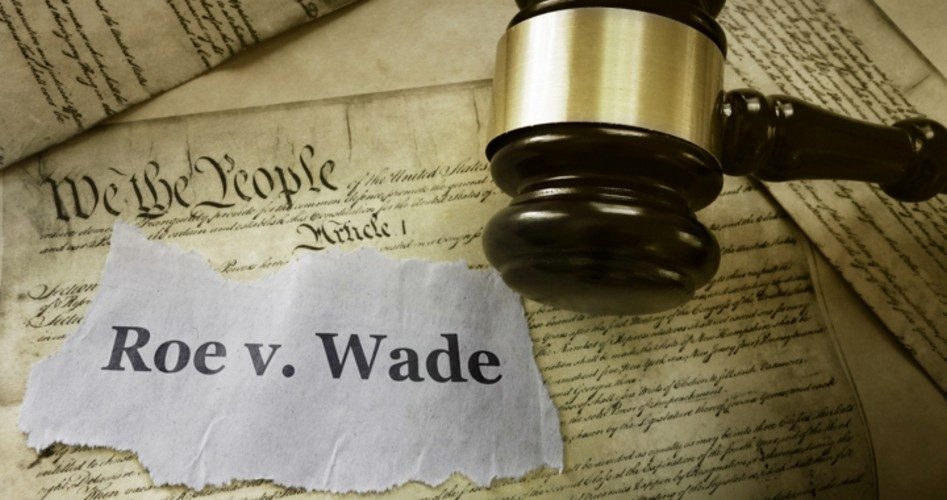
The passage of Illinois Representative Kelly Cassidy’s Reproductive Health Act by the Democrat-controlled Illinois House on Tuesday laid out clearly the sharp divide between pro-life and pro-abortion supporters. Count Cassidy on the pro-abortion side.
Her bill now heads to the Democrat-controlled State Senate, which is all but certain to approve it, and then it’s on to Democrat Governor J.B. Pritzker, who said in a statement that he “looks forward to signing it into law.”
The Reproductive Health Act would rescind previous prohibitions on some late-term abortions, along with a 45-year-old law demanding criminal penalties against doctors performing abortions.
Part of Cassidy’s motivation is the success pro-life supporters have had recently in passing anti-abortion laws designed to bring the issue to the attention of the Supreme Court. She called them “attacks” on “reproductive freedom”: “These attacks have increased dramatically. They’re focused and strategic and aimed at undermining our [women’s] right to bodily autonomy and self-determination.”
Illinois joins Nevada, New York, and Vermont, which have recently expanded abortion “rights” through legislation.
The day after the Illinois House passed Cassidy’s bill, the Louisiana House passed a bill effectively banning all abortions at any point during pregnancy. Said state Senator John Milkovich, a sponsor of the bill: “Our ultimate goal is to outlaw every abortion, including those that occur at any time after conception.… We believe this is an important blow to be struck in defense of the lives of the unborn.” This follows moves by Mississippi, Kentucky, Ohio, Georgia, and Alabama to expand the rights of the unborn through legislation. Called “fetal heartbeat” bills (except Alabama’s, which outlaws all abortions), they are setting the stage for a battle royale at the Supreme Court.
In fact, the Alabama bill that just passed the state’s senate was designed specifically for that battle. Said Terri Collins, the bill’s sponsor: “The heart of this bill is to confront a decision that was made by the [Supreme] court in 1973 that said a baby in the womb is not a person. This bill addresses that one issue: is that baby in the womb a person?”
The issue was clearly drawn by U.S. District Court Judge Carlton Reeves when he blocked Mississippi’s law last week. The new law, he said, “threatens immediate harm to women’s rights … prevent[ing] a woman’s free choice, which is central to personal dignity and autonomy.”
There it is. It’s not a matter of red state versus blue state, or Democrat versus Republican, or even Right versus Left. It’s not even a matter of a fetus versus a woman’s freedom to choose. It’s a matter of life versus death.
When asked during his confirmation hearings if he would support Roe v. Wade, then-Supreme Court nominee Brett Kavanaugh responded, “As a general proposition I understand the importance of the precedent set forth in Roe v. Wade.… [it] held … and reaffirmed in Planned Parenthood v. Casey, that a woman has … a right to obtain an abortion before viability.
When pressed by Senator Dianne Feinstein (D-Calif.) about whether he considered Roe v. Wade “settled law,” Kavanaugh said “It’s settled as a precedent of the Supreme Court … under the principles of stare decisis [“let the decision stand”] … [and] reaffirmed in Planned Parenthood v. Casey in 1992.”
Is Kavanaugh correct? Is Roe v. Wade poured into concrete, with no chance of any future court overturning it? Since 1808, the Supreme Court has overruled or overturned 125 separate previous decisions! This historical fact alone gives credence to the strong possibility that Roe would be overturned, if the court agrees to hear one of these states’ laws on appeal.
Many on the pro-life side are Christians, and for them, there is another Judge involved in the matter. They would say that this Judge is whom Thomas Jefferson referred to as the Creator, when he crafted the United States Declaration of Independence from Great Britain in 1776: “We hold these truths to be self-evident, that all men are created equal, that they are endowed with their Creator with certain unalienable Rights, that among these are Life, Liberty and the pursuit of Happiness.”
The Supreme Court justices must remember that earthly judges will be held by this Judge to a higher standard than ordinary citizens, especially when making decisions on matters as weighty as the battle over life versus death which is headed their way.
An Ivy League graduate and former investment advisor, Bob is a regular contributor to The New American, writing primarily on economics and politics. He can be reached at [email protected].
Related article:
Alabama Targets Roe v. Wade With Its Complete Abortion Ban Bill



